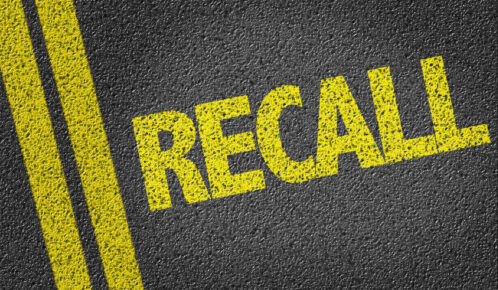You will know if you are eligible for a class action lawsuit payout through a notice mailed or emailed directly to you or posted online or in newspapers. You might still be eligible for a payout even if you did not receive a direct notice. Reach out to the lawyer representing the class if you believe you qualify to join a class action involving a product or service that harmed you.
Table of Contents

To start a class action, an eligible member must have suffered an injury after using the affected product or service for a specific duration. In some instances, only users living in specific states are eligible for a settlement. So, carefully review the notice and any information obtained from the lawyer working on the case to determine if you meet the description of a class member before opting into the class action.
How Do I Know If I Am Eligible for a Class Action Lawsuit Payout?
You might ask this question if you read information about a class action lawsuit payout involving a product you are currently using or have used before. Your options for determining if you are eligible for a class action lawsuit payout include the following:
Notices
Class action lawsuits generally involve many people pursuing compensation for a common injury. Only one plaintiff usually initiates a suit to recover compensation for the injury, however. That plaintiff and his or her legal representatives then try to identify and notify all qualified individuals who may be entitled to financial recovery for the same injury.
You will receive a notice in the mail or email if you are an eligible class member. The notice will provide a detailed description of the lawsuit and all your available options. In most cases, eligible class members join the litigation automatically and do not have to take any action. In other instances, the members may have to complete and file a claim form to join the class action.
You might also have an opt-out option, especially in cases where you are automatically included in the litigation. This option lets the persons starting the class action know that you are pulling out of the lawsuit.
National Magazines and Newspapers
Sometimes it is impossible to send direct notices to all eligible members informing them of a class action lawsuit settlement. In such cases, the notice might get posted in national magazines and newspapers to ensure all qualified class members are informed of the settlement. Regularly checking newspapers and magazines can be a great way to get information about class action cases open to qualified members.
Online Databases
Online databases are another valuable resource to learn whether you are eligible for a class action lawsuit payout. These sites usually feature a list of closed class-action cases, or those that have already compensated eligible class members. They also provide a list of pending cases, which are those still in negotiation or arbitration stages. You can also get information about lawsuits accepting eligible class members on these online databases.
If you do not find any cases you are eligible to join the first time, keep checking these sites regularly. Doing that allows you to stay up-to-date with all the new class actions and increase your chances of finding one that represents the injuries you sustained. This is especially true if you have suffered harm from a product or service you bought or used and anticipate a class action lawsuit.
Contacting Class Action Lawyers
You can find out if you are eligible for a class action lawsuit payout from class action lawyers. Be sure to contact lawyers representing the specific class you believe you qualify to join.
Provide the lawyers with as much information as possible about the harm or damage you have suffered from the underlying product or service. Let the lawyers know that you want to join the case. The lawyer will review your claim and include you in the class if you meet the eligibility requirements.
What Is a Class Action Lawsuit?
A class action is a case initiated by one or more people on behalf of a large group, or “class,” of people who have suffered a common harm or injury because of the negligent actions of one or more parties. In other words, a plaintiff or a few named plaintiffs file a lawsuit on behalf of a larger group of unnamed plaintiffs.
The unnamed plaintiffs are referred to as members of a class because of having similar legal claims as the named plaintiffs (or lead plaintiffs). The claim remains a putative class action and cannot move forward until a judge certifies it as a class action.
Unnamed plaintiffs receive a notice apprising them of the lawsuit after class certification. They also get a chance to opt out of the lawsuit. The class action will not affect your legal rights if you decide to opt out of the class. As such, the outcome of the lawsuit will not apply to you.
Similarly, you will not receive any check from the payout awarded to the class members, either by settlement or court verdict. You will, however, retain your right to file a lawsuit later to pursue compensation from the liable party (or parties).
A class action allows you to pursue compensation for a small claim that would be otherwise expensive to pursue by yourself. An example is buying a defective product worth less than $100. Filing a product liability claim against the responsible manufacturer would be impractical in such a case. The reason is that the cost and time involved in litigating the case would be much greater than the $100 benefit.
Combining the claims of all consumers affected by the same defective product into one lawsuit will make the case more valuable and worth litigating. That is what a class action lawsuit does.
A class action suit levels the playing ground between powerful entities and individuals with limited resources. You stand in a better position to recover a reasonable payout when you are a class member than when pursuing a small legal claim individually.
How Do I Claim My Portion of a Class Action Settlement?
You will generally have to file a claim online or via the mail to get your share of a class action payout or judgment. The notice you got in the mail or email contains instructions for claiming your portion of the payout. The lawyer representing the class can also guide you on how to do so.
How Are Class Action Settlements Distributed?
If you are an eligible class member, you might ask, “how are class action settlements distributed?” The settlement agreement or court verdict determines how money is distributed among class members. A court must review the outcome of a class action case resolved out of court to determine if it is reasonable and sufficient.
The payout generally goes to the named plaintiffs, the unnamed plaintiffs (members of the class), and lawyers who represented the class. The named plaintiffs usually get a higher portion of the settlement or judgment than the unnamed plaintiffs because they dedicate more time and effort toward the lawsuit.
Most class action lawyers work on these lawsuits on a contingency fee basis. As such, they use their resources to conduct investigations and cover other costs related to the class action. These lawyers only earn their legal fees and recover their expenses if they get a favorable outcome on behalf of the class. Contingency fee structures motivate lawyers to strive to obtain the most favorable outcome from a lawsuit.
Contingency fees typically range from 30% to 40%. Some lawyers have a fixed contingency fee structure. This arrangement means the fees owed to the lawyer do not change, no matter the stage at which the class action suit resolves.
Other lawyers have a varying contingency fee structure. This agreement specifies that the percentage of fees owed to the lawyer will depend on the stage at which the class action resolves. Lawsuits settling before trial carry lower contingency fees than those that proceed to trial.
A court will consider the cost of contingency fees when determining whether a settlement or judgment will be reasonable and sufficient for the plaintiff.
How Much Will My Portion of the Class Action Lawsuit Payout Be?
It is hard to accurately predict how much you will get from a class action lawsuit without examining the specific facts of the case. Class actions usually resolve through an out-of-court settlement process, with only a few cases reaching trial.
The $206-billion settlement reached between 46 states and leading tobacco companies in November 1998 is still the largest class action payout in U.S. history to date. The average payout for class action lawsuits currently stands at $56.5 million.
Large settlements rarely translate to a significant payout for every class member. Various factors will determine the amount of money you will receive from a successful class action suit. These factors include payout amount, the settlement agreement or judgment, whether you are a named or unnamed plaintiff, and lawyer’s fees and other court expenses.
When Will I Receive My Portion of the Class Action Lawsuit Settlement?
Just like determining your payout amount, it is hard to predict when exactly you will get a payment after joining a class action. You may sometimes receive a payment a few weeks after joining, especially if a case settles and gets approved by the court before reaching trial.
Other times, you might have to wait for several months or even years before getting your portion of the settlement. This scenario usually unfolds when a trial is necessary to resolve the case.
Can I Bring a Mass Tort Litigation Rather than a Class Action Suit?
Whether to initiate a mass tort or a class action litigation will depend on the specifics of your case. You might have grounds to start a mass tort litigation if a product that has harmed you significantly has also harmed a large number of people in a similar way. Mass tort cases usually involve harmful drugs and defective medical devices or products. The best way to determine whether to file a mass tort or class action lawsuit is to consult a class action lawyer with a proven history of handling both types of cases.
Do I Need to Hire a Lawyer for a Class Action Case?
Choosing a lawyer for a class action lawsuit is crucial if you are considering pursuing compensation from a defective product manufacturer. You will be the named (or lead) plaintiff if you hire a lawyer, initiate a claim first, and the court certifies it as a class action.
Your lawyer will investigate your claim and gather compelling evidence to build a strong case against the liable party. The lawyer will also help you identify and notify eligible class members. Additionally, your lawyer will handle settlement negotiations with the defendant or the defendant’s insurer and litigate the case in court if negotiations are unfruitful.



